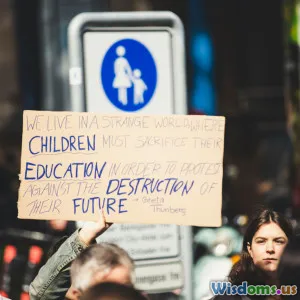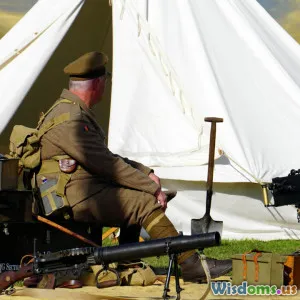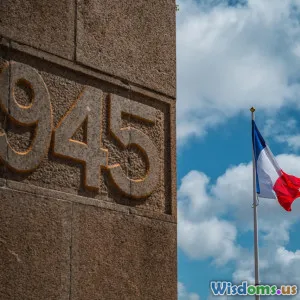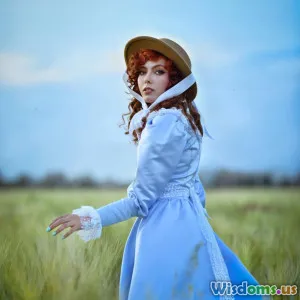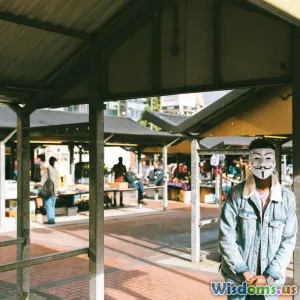
How Literature Reflects Society
7 min read Explore how literature mirrors societal changes, values, and conflicts through timeless stories and evolving narratives. (0 Reviews)
How Literature Reflects Society
Literature is far more than mere entertainment—it serves as a powerful mirror reflecting the complexities, values, and transformations within society across time. From the struggles depicted in Shakespearean plays to the revolutionary ideas in contemporary novels, literature holds a unique place in chronicling human experience.
This article explores how literature acts as a societal lens, reveals cultural struggles, and influences social perspectives, all while enriching our understanding of humanity.
The Historical Mirror: Literature as a Chronicle of Its Time
Through the centuries, literature has offered profound insights into the eras in which it was written. Consider Charles Dickens’ Oliver Twist, published in 1837—a scathing social commentary on the dire poverty and corruption in Victorian England. Dickens’ vivid portrayal of workhouses and child poverty illuminates a time of rapid industrialization accompanied by stark socio-economic divides.
Similarly, Harper Lee’s To Kill a Mockingbird (1960) presents a powerful window into the racial prejudices and socio-political tensions of the American South during the 1930s. Lee’s story, though set in the past, reverberated through the civil rights era when it was published, helping to provoke discussion about justice and equality.
Literature and Social Movements
Literature has often intertwined with social movements, amplifying marginalized voices. The Harlem Renaissance in the 1920s and 1930s, for instance, produced influential writers like Langston Hughes and Zora Neale Hurston, who celebrated African-American culture while exposing systemic racism.
More recently, authors like Chimamanda Ngozi Adichie provide poignant narratives on gender, identity, and post-colonial realities. Her works, such as Americanah, challenge Western perceptions by highlighting the nuances of immigrant experiences, race, and feminism.
Social Critique and Moral Reflection Through Literature
One of literature’s most enduring roles is critiquing societal values and prompting moral reflection. Fyodor Dostoevsky’s Crime and Punishment (1866) delves deep into the psychology of crime, justice, and redemption, reflecting the philosophical anxieties of 19th-century Russia.
George Orwell’s 1984 serves as a chilling exploration of totalitarianism, censorship, and surveillance—issues deeply relevant during the mid-20th century Cold War but persisting today in debates over privacy and governmental power.
These works challenge readers not only to observe societal flaws but to question their own complicity and ethics.
Literature as a Catalyst for Social Change
Beyond mere reflection, literature can inspire societal transformation. Upton Sinclair’s The Jungle (1906) exposed horrific conditions in the U.S. meatpacking industry, contributing directly to reforms in food safety laws. This example underscores literature’s potential as an agent of activism.
Nowadays, dystopian novels such as Margaret Atwood’s The Handmaid’s Tale spark dialogue about women's rights, authoritarianism, and reproductive freedom. Its subsequent television adaptation revived public consciousness around these crucial issues, illustrating literature’s extended influence beyond the page.
The Universal and the Timely: Literature’s Dual Role
A unique power of literature is its layered capacity to be both universal and timely. Shakespearean tragedies like Macbeth explore ambition and morality that resonate across centuries and cultures. Yet, when new editions emerge with contemporary settings, these themes become freshly relevant.
Moreover, literary trends often reflect evolving societal concerns. The rise of speculative fiction and climate fiction (cli-fi) highlights urgent discussions about environmental crises. Margaret Atwood herself embraced this trend, warning in interviews and lectures about impending ecological catastrophes.
Literature and Identity Formation
Societies shape literature, but literature equally molds collective and individual identities. Narratives around race, gender, class, and nationality help readers understand their place in the world. For example, the surge of LGBTQ+ literature, with titles like Elena Ferrante's emotionally detailed works or Ocean Vuong's poems, fosters inclusiveness and empathy by portraying diverse experiences.
In education, including diverse voices expands understanding and counters stereotypes, proving literature is a potent tool in both reflecting and shaping accepted social narratives.
Conclusion: The Ever-Relevant Reflection
From ancient epics to digital literature, storytelling encapsulates the societal spirit, challenges prevailing norms, and inspires change. By engaging with literature critically and thoughtfully, readers gain a deeper appreciation of their own societies and histories.
In an era dominated by rapid change and global challenges, literature remains an essential compass—guiding us through complex social landscapes and fostering connection and understanding among diverse peoples.
Whether seeking to examine injustice, celebrate cultural richness, or understand political tensions, literature serves as an invaluable window into the soul of society.
Encouragement to Readers:
Explore diverse literary works to uncover hidden social truths, challenge your perspectives, and gain new insight into the world around you; literature is not just a reflection but a call to awareness and action.
References:
- Dickens, Charles. Oliver Twist, 1837.
- Lee, Harper. To Kill a Mockingbird, 1960.
- Orwell, George. 1984, 1949.
- Sinclair, Upton. The Jungle, 1906.
- Atwood, Margaret. The Handmaid’s Tale, 1985.
- Hughes, Langston & Hurston, Zora Neale. Harlem Renaissance Poetry and Prose.
- Adichie, Chimamanda Ngozi. Americanah, 2013.
Rate the Post
User Reviews
Popular Posts










